In one of the more memorable scenes from the 1992 movie Wayne’s World, Wayne and Garth get to hang out backstage with Alice Cooper, to which they respond by bowing down and telling him, “We’re not worthy! We’re not worthy!”
Cooper commands such respect, fictional or otherwise, both for his music and pioneering dark theatrics involving guillotines, snakes, twisted makeup, and much more. His efforts have earned him the honorary (or is it dishonorary?) title of the “Godfather of Shock Rock”, plus well-deserved election to the Rock and Roll Hall of Fame.
The Alice Cooper saga began in the late 1960’s when the band, at that time itself called Alice Cooper, released the psychedelic-tinged album Pretties For You, which Frank Zappa reportedly agreed to produce to get the band to leave his house. Early notoriety came when Alice Cooper, the singer, threw a live chicken from the stage which was subsequently attacked and killed by the audience, an incident exaggerated by the press. The classic Alice Cooper sound was born when producer Bob Ezrin came on board, and the band’s profile grew with hits like “I’m Eighteen”, “School’s Out”, and “No More Mr. Nice Guy”.
Alice Cooper, the singer, launched a successful solo career with his 1975 album Welcome to My Nightmare, and since that time he has released multiple albums and played countless concerts which push the boundaries of what a rock and roll show can be.
This interview was done for a preview article for Alice Cooper’s concert on 11/21/13 at the Chumash Casino. It was done by phone on 11/5/13.
Alice Cooper: Hey Jeff.
Jeff Moehlis: Hi, Alice. Thanks for doing this.
AC: Oh, no problem. I’ve got a show tonight in… Where are we? Nebraska somewhere.
JM: It’s probably hard to keep track of where you are, right?
AC: It really is. This is like our 84th show of this tour around the world. We’ve only got about 15 or 16 left.
JM: I’m glad you’re going to make it out here. What can we look forward to at the upcoming show?
AC: Every show of ours we take in a different direction. It’s always going to be hard rock. I mean, that’s what Alice is. We’re Detroit rock. And then you add the Alice character, and you add the theatrics. We do it differently every time, but it’s always going to be a hard rock band. I put a lot of emphasis on the music, and I always let the theatrics follow the lyrics.
So this one, when we put it together, it ended up being in three parts. It sort of starts out as “Glam Alice”. You know, when we first started, we were totally glam. I mean, that’s how a lot of the shock rock thing and the glam rock thing got started. People didn’t know what to think of us, you know? Here we are [called] Alice Cooper, and the make-up and the whole thing like that. So we decided to go there for the beginning of the show, for the first seven or eight songs.
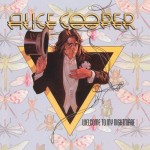
Then it goes to the “Nightmare Alice”, which is the other thing that Alice is really known for. The theatrical, dark kind of Alice, with the straightjackets and the guillotines and the snakes, and the whole thing.
Then I end up, after they cut my head off, I end up in the graveyard of the Hollywood Vampires, that used to be my drinking club in L.A. It was myself, Jim Morrison, Jimi Hendrix, John Lennon, Keith Moon, all the guys that were the drinkers. We all met every night and drank. It’s kind of a tribute to all my dead, drunk friends. We do four covers. We do a Jim Morrison song, we do a Keith Moon song – well, a Who song, because we throw John Entwistle in there, too. He was another one of the guys. John Lennon, and Jimi Hendrix. Which is something I’ve never done before, and I always like to do things that I’ve never done. So doing a tribute to four of my dead, drunk friends is kind of appropriate for me.
Then we finish up with three of the biggest hits at the very end, you know, “I’m Eighteen”, “Poison”, “School’s Out”. At the end of the show, they think nothing else is happening. We couldn’t do anything else. And then they get hit with the weather balloons full of confetti and the streamers from the ceilings. So it ends up being a gigantic party at the end.
JM: Awesome! You mentioned the guillotine and stuff like that. Why do you think that people are so drawn to the sort of thing, the macabre?
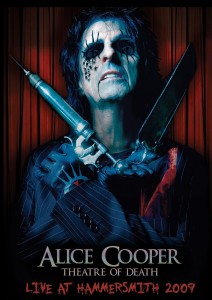
AC: I think that it’s now traditional. I think that it’s tradition. At the beginning people were shocked by it. And I think, now, you can’t really shock an audience anymore. I think they’re shock-proof. CNN is more shocking than anything that [Marilyn] Manson or I or Slipknot can do. Now, they expect Alice to do the guillotine. They expect the straightjacket. They expect the insane nurse and the drama that goes on with Alice. So they know it’s not just going to be a straight-up rock and roll show. It’s going to be a traditional Alice Cooper show.
And I think that people are finally starting understanding, in the last ten, fifteen years, the sense of humor behind Alice Cooper. For a long time it was just all scary, and hard rock, and anthems, and people got all that. But I think they’ve started to get the sense of humor behind it.
JM: One of your other friends recently passed away – Lou Reed. Are you willing to share any of your thoughts on him, on his life?
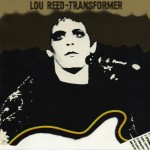
AC: Well, the interesting thing about Lou, that I think was pretty cool, was that Lou was the most underground of the underground. He was more underground, I think, him and Nico and the Velvet Underground, they were more underground than Warhol. I think there was a period of time when he was just absolutely beyond even talking to. He was into another realm. I mean, his drug use and everything. They were so dark, it was weird. The Chelsea Hotel… we used to live together at the Chelsea Hotel. I don’t remember even talking to him there. I’d see him all the time, but you just didn’t talk to Lou Reed.
Then after that, he grew out of that, and so did I. There was one period of time, twenty years later, where I saw him somewhere, and he comes over to me and goes, “Alice.” And I go, “Yeah.” He goes, “I’m hitting the ball to the right. I don’t understand why I’m slicing the ball.” And I’m going, I didn’t know that he played golf. And I went, “Well, relax your right hand, and let your right hand turn over… Can you imagine having this conversation in 1972 at the Chelsea Hotel?” And we both kind of went, “No!” We had other things on our mind at the time.
I think Lou was New York personified. I don’t think you could find anybody more New York than Lou Reed. He was out of place every time he left New York City. He was just part of the furniture there.
JM: Whenever I do these interviews I ask this question. What advice would you give to an aspiring musician?
AC: Well, at this point it’s all about songwriting. You know, to me, I think anybody make noise, anybody can make a great record, because everything is so doable now technology-wise. The only thing that’s not automatic is writing a great melody line, and writing a great lyric that goes with it.
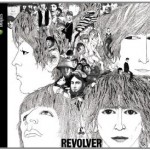
I would tell any young band that’s 17, 18 years old to listen to nothing but The Beatles. Because the further that the generations go from The Beatles, the worse the songwriting gets. When you watch the cycles of bands that were getting further and further away from the Sixties Beatles thing… and I’m not just talking about The Beatles, but that era of songwriting, really, really good songwriting. Now it’s just a matter of: here’s a beat, lyrics really don’t matter, melody line – OK, as long as you can dance to it. To me, that’s not songwriting. I mean, you can just do that. You could just manufacture that on a computer, you know?
I want to hear people that actually write songs, where I can see that that lyric is married to that chord, the way The Beatles did it, the way Burt Bacharach did it, the way The Rolling Stones did it. You know, people don’t really think of The Rolling Stones as great songwriters, but they wrote some really good songs. The Who, Pete Townshend. If I were a young band right now, I would be listening much, much more to stylistic Sixties type of rock.
It’s a funny thing though, when I talk about that. When I talk to Steven Tyler, and I talk to Ozzy Osbourne, and I talk to everybody from that era, our era, we all talk about The Beatles. We talk about how we were influenced by The Beatles, and then sort of let The Who and The Yardbirds influence us more on a progressive level. We all went more in that direction, but still, the melody lines always kept coming back to that.
JM: Do you want to set the record straight on anything? Something that always annoys you, or misconceptions about you?
AC: Well, there has never, ever been anything Satanic about Alice Cooper. I’m the prodigal son. I came from a Christian background, my dad was a pastor, my grandfather was an evangelist. I went away from the church, and came back to the church. I’m still playing the character Alice Cooper, but it’s been a character that I’ve created for 45 years. Hopefully, 20 or 30 years from now somebody will still be playing Alice Cooper.
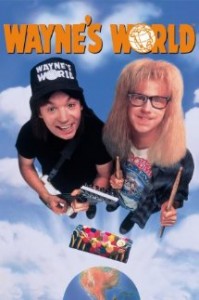
JM: I was going to start off the interview by saying “I’m not worthy, I’m not worthy!” [AC laughs] But I figure you hear that too much already.
AC: Well, mostly at airports [laughs].

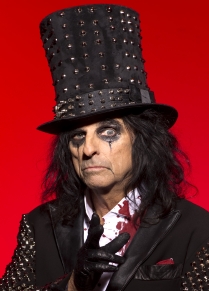
Just got my tixs for the Reno Nevada show.Nov.22 2013
I am so excited my husband did not want to go. He thinks its going to be the nightmare Alice only. He told me he would like to hear the #1 tunes. Wont he be surprised.
I love a boy named alice.
Alice is still a great live act and I love his new albums quite a bit. I don’t personally care for the covers thing he is doing but any Alice show is special. I personally like when he does a few more obscure songs. To Doriann, you don’t have to worry Alice always does the hits. I actually wish he would do a tour playing stuff off Raise Your Fist and Yell, The Last Temptation, etc.